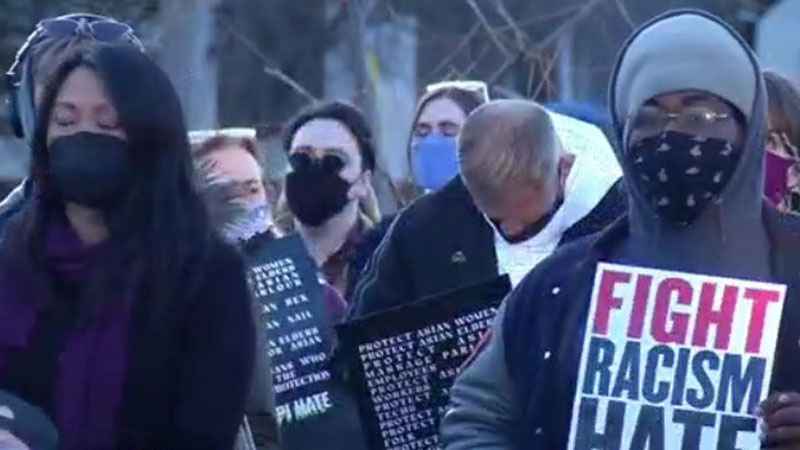Hundreds rally in Minneapolis to support Asian American community after Atlanta attacks
[anvplayer video=”5015038″ station=”998122″]
In what organizers called an ’emergency action’, hundreds gathered to rally around the local Asian American community.
Organized by six different community groups, the ‘Asian Solidarity March’ took place at Levin Park, Thursday night – two days after eight people were shot and killed near Atlanta. Six of those people were Asian American women. All of the shootings took place at massage parlors.
"We’re at the point where we don’t want to wait for other people to start having our backs," Anthea Yur, one of the organizers, said.
"(We’re) just rising saying if you’ve got my back, you can come follow us," Yur added while hundreds gathered to do just that.
Multiple speakers shared specific and aggressive acts of racism that happened in the community. One of the speakers was Hai Nguyen – who said he hopes after the rally that the conversation and work to better the community continues.

[KSTP]
"(We need to) just acknowledge that we need to treat women better," Nguyen said. "Not just women of color, but just women in general."
Asian Americans grieve, organize in wake of Atlanta attacks
"We also need to come together as communities of color," he added. "We have been hurting for generations and it is OK now to come together and to ask our white allies, and to ask our friends, to help us."
The Asian American and Pacific Islander communities across the country have experienced an increase in racist and xenophobia attacks – both verbally and physically.
"The community is devastated and I’m personally devastated and heartbroken," Bo Thao-Urabe, executive and network director of the Coalition of Asian American Leaders (CAAL), said.
Thao-Urabe said a big issue with overcoming, and decreasing the number of attacks, starts with eliminating the idea that racist acts do not happen to Asian-Americans.
"People are spending so much energy to justify the experiences they’ve had, often time we don’t get to the systemic solutions," Thao-Urabe said.
She said those include figuring out what communities can do, and the state as a whole, to make sure everyone feels safe.
Providing resources to help with that is a big part of CAAL’s mission.